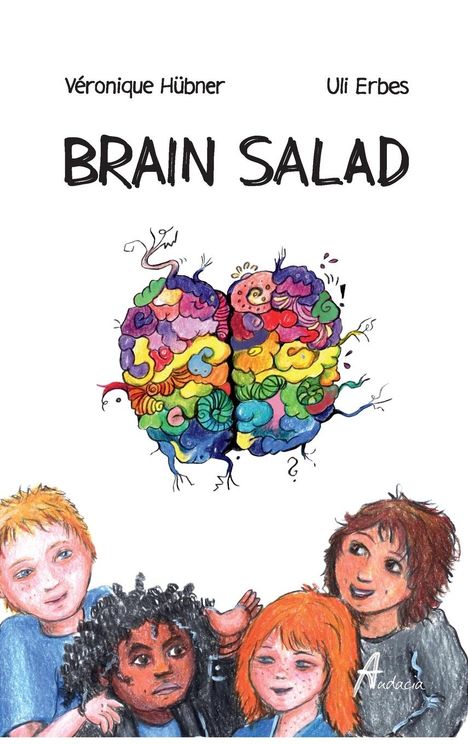Véronique Huebner: Brain Salad, Gebunden
Brain Salad
(soweit verfügbar beim Lieferanten)
- Verlag:
- Audacia, 07/2024
- Einband:
- Gebunden, HC gerader Rücken kaschiert
- Sprache:
- Englisch
- ISBN-13:
- 9783911110105
- Artikelnummer:
- 11924081
- Umfang:
- 54 Seiten
- Altersempfehlung:
- 5 - 12 Jahre
- Gewicht:
- 284 g
- Maße:
- 235 x 157 mm
- Stärke:
- 8 mm
- Erscheinungstermin:
- 22.7.2024
- Hinweis
-
Achtung: Artikel ist nicht in deutscher Sprache!
Klappentext
We all have BRAIN SALAD! But for Noah, Leah, Oscar and Nancy it is the order of the day. It makes them not get along well with others. It means that someone is always angry with them. And that's why it makes them lonely and sad. Luckily, they find each other and form the BRAIN SALAD CLUB. They become friends and not only learn to handle their BRAIN SALAD better, but also recognize their strengths.
Autism, ASD, ASC Oscar reminds us of a child who has autism. He finds it hard when things don't follow a routine. He often doesn't know how to interact with others. And sometimes he feels like he's on another planet.
FAS(D), ARND, Fetal Alcohol Spectrum Disorder It is quite possible that Leah's brain development was disturbed before she was born. She has a very hard time remembering rules and everything that's "supposed to be done". She has trouble concentrating and forgets a lot of things. On her bad days, everything she learned on her good days can be gone.
ADHD, impulse control disorder There's a good chance that children with ADHD will recognize themselves in Noah. His contact with others is mostly unsuccessful. He doesn't make friends with his urge to tease and mock. Things that he doesn't enjoy very much are incredibly exhausting for him so he prefers not to start them at all.
Attachment disorder, trauma, (c)PTSD Bad things probably happened to Nancy when she was very young. She is cheeky and her behavior is often oppositional; consequences are of no interest. She is constantly afraid of being left alone or that other bad things will happen. To avoid these feelings of fear, she acts as if she doesn't care.
The book doesn't include classifications and diagnoses of any kind. The protagonists could have these diagnoses - or completely different ones. Symptoms often overlap and comorbidity is not uncommon. Clinical psychology is an empirical science. Categorizing individual people into general diagnoses is only possible to a limited extent. Maybe the children's behavior isn't even pathological at all and they're just a little different? We all have brain salad.
The emotional world of the affected children Oscar, Leah, Noah and Nancy take us into their world and show us how they feel. Their story awakens a great deal of understanding for neurodiversity an atypical behaviors, even in younger children. But adults can also experience a change of perspective here, which enables them to deal with affected children in a more understanding manner, appreciating their unique strengths.
This book canintroduce children to the topic of "neurodivergence". sensitize adults to the needs of affected children help to start a conversation with children about conspicuous behavior in peers support all those affected be used in school lessons - also in elementary school settings, thanks to large letters and plain language be used by play therapists, school social workers, therapeutic social workers, foster carers, adoptive parents, kinship carers, special guardians and therapeutic parents, to help children to understand themselves and their peers



